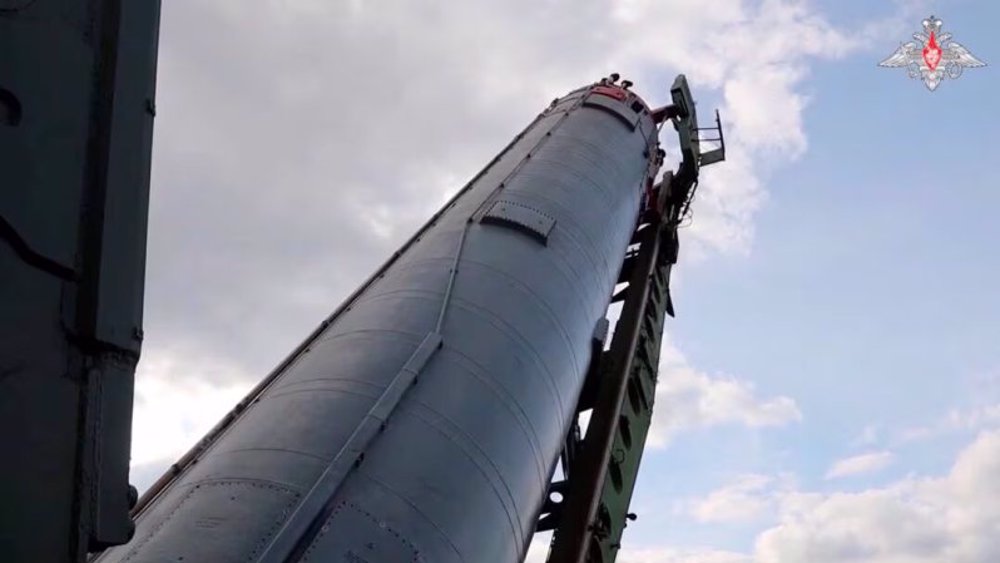Russia has loaded an intercontinental ballistic missile (ICBM) equipped with a nuclear-capable hypersonic glide vehicle into a launch silo, the defense ministry says, two weeks after Moscow quit a global pact banning nuclear weapons tests.
The Zvezda military news outlet, owned by the defense ministry, broadcast a video on Thursday showing the strategic ICBM equipped with the Avangard hypersonic boost-glide vehicle as it was being installed at a facility in the Orenburg province in southwest Russia, near Kazakhstan.
As it nears its target, the Avangard glide vehicle separates from the rocket and is capable of maneuvering sharply outside the trajectory of the rocket at hypersonic speeds of up to 27 times the speed of sound (about 21,000 miles per hour or 34,000 kilometers per hour).
The video showed the ICBM being transported to a launch silo before gradually raising it into a vertical position and then lowered it into a shaft.
Back in 2019, Moscow installed its first Avangard-equipped missile at the same Orenburg facility.
The Russian military says the strategic weapon is impossible to intercept by missile defense system. Russia considers them key to maintaining the nuclear status quo of mutually assured destruction.
The Kremlin says Washington’s withdrawal in 2002 from the ABM Treaty left no choice for Russia but to start developing hypersonic weapons.
On November 2, Russian President Vladimir Putin officially signed into law the withdrawal of ratification of the Comprehensive Nuclear Test Ban Treaty (CTBT), which kept a lid on nuclear testing for decades.
With his signature, the legislation takes immediate effect, at a time of acute tension with the West, particularly over Russia’s ongoing war in Ukraine, which has put ties between Washington and Moscow at their lowest level since the 1962 Cuban missile crisis.
Now, the last remaining bilateral nuclear weapons treaty between Washington and Moscow is New START, which was extended in February 2021 until February 4, 2026, by US President Joe Biden and Putin.
On February 21, Russia suspended its participation in New START. However, it did not withdraw from the treaty, clarifying that it would continue to abide by the limits on the number of nuclear warheads that can be deployed under New START.




